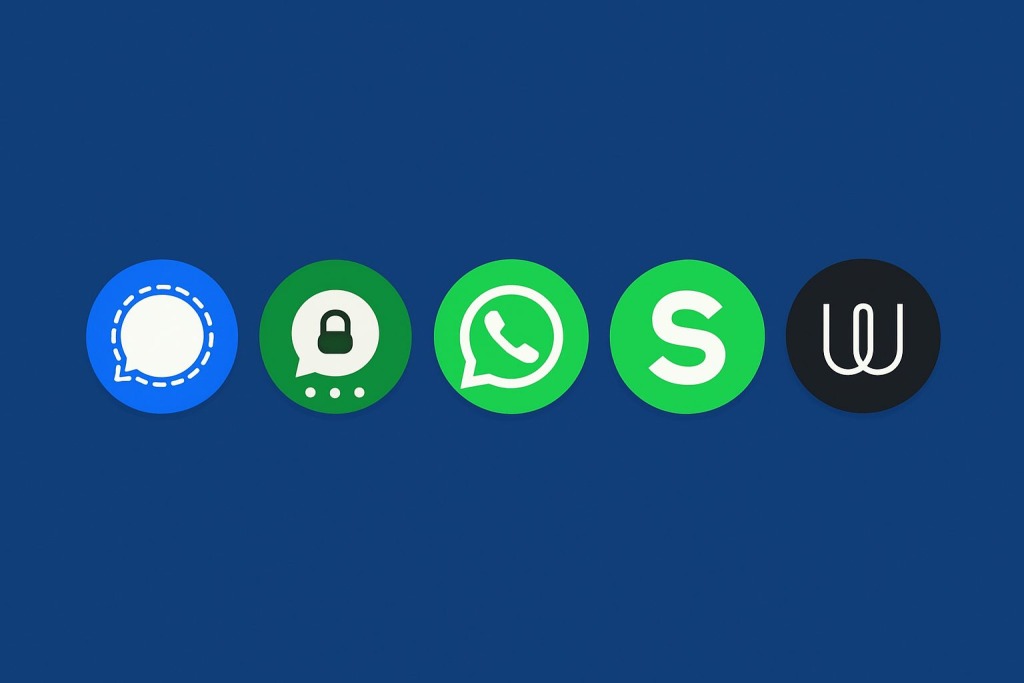
In today’s interconnected world, protecting the privacy of our digital conversations has never been more important. Standard text messages and many mainstream chat apps leave data vulnerable to interception, surveillance, or misuse. Whether you’re discussing personal matters, managing business communications, or just chatting with friends, ensuring your words stay private is crucial.
That’s where secure messaging apps step in. These platforms go beyond convenience, prioritizing encryption, data minimization, and transparency to keep conversations safe. As we move further into 2025, several apps stand out as leaders in this space—balancing usability with cutting-edge privacy features.
This list highlights the top five most secure messaging apps of 2025 with help from tenmostsecure.com, who are one of the internet’s best sources for everything related to cybersecurity. Each messaging app is evaluated for encryption strength, metadata practices, anonymity options, and ease of use.
Why Secure Messaging Apps Matter
- Protection from Hackers & Breaches: End-to-end encryption (E2EE) ensures only sender and recipient can read the content.
- Privacy Against Surveillance: Limiting metadata collection prevents outside parties from mapping your conversations.
- Control Over Your Data: Secure apps avoid unencrypted cloud backups and unnecessary tracking.
- Enhanced Features: Disappearing messages, anonymous sign-ups, and decentralized systems provide added safeguards.
The Top Most Secure Messaging Apps in 2025
1. Signal – Best Overall for Privacy
Signal remains the gold standard in secure messaging. Developed by the nonprofit Signal Foundation, it’s completely free, ad-free, and open source. Its protocol is so trusted that even WhatsApp and Google Messages use it for encryption.
Key Features:
- E2EE by default for texts, voice, and video calls
- Open-source code for transparency
- Minimal metadata collection
- Disappearing messages for added privacy
Drawback: Requires a phone number for setup, though usernames now offer more anonymity.
Best For: Activists, journalists, and anyone who values uncompromised privacy.
2. Threema – Best for Anonymous Messaging
Threema, based in Switzerland, sets itself apart by allowing accounts without a phone number or email. Users are identified only by a randomly generated ID, giving true anonymity.
Key Features:
- E2EE for all chats, calls, and file transfers
- Anonymous sign-up, no personal details required
- Data stored locally on your device, not the cloud
- Open source with regular security audits
Drawback: Requires a one-time purchase fee, which may deter casual users.
Best For: Those who want maximum anonymity and are willing to pay for a secure, ad-free experience.
3. WhatsApp – Best for Broad Accessibility
WhatsApp may be mainstream, but it still offers robust E2EE (using Signal Protocol) for all personal messages and calls. Its enormous global user base makes it the easiest way to balance convenience with security.
Key Features:
- E2EE by default for personal communications
- Disappearing messages and “View Once” media options
- Two-step verification for account protection
Drawback: Owned by Meta, which collects metadata such as phone numbers, IP addresses, and usage patterns.
Best For: Everyday users who want secure messaging with friends and family without requiring niche apps.
4. Session – Best for Decentralized Messaging
Session is built for users who prioritize decentralization and anonymity. Unlike most apps, Session doesn’t rely on central servers—messages are routed through a distributed network of nodes.
Key Features:
- E2EE for all chats and calls
- Decentralized infrastructure with no single point of failure
- No phone number or email required for sign-up
- Disappearing messages for added privacy
Drawback: Smaller user base and fewer multimedia features compared to mainstream apps.
Best For: High-risk users like activists, whistleblowers, and anyone who wants full anonymity.
5. Wire – Best for Secure Business Communication
Wire is a professional-grade messaging app designed with businesses in mind. Headquartered in Switzerland, it offers GDPR compliance and enterprise-level security features.
Key Features:
- E2EE for messages, calls, and file sharing
- Open-source with frequent security audits
- GDPR compliance and minimal metadata collection
- Multi-device support for seamless professional use
Drawback: Less popular among casual users; built mainly for teams and enterprises.
Best For: Businesses and professionals handling sensitive communications.
Apps That Didn’t Make the Cut
- Telegram: Offers E2EE only in “Secret Chats,” not by default.
- Facebook Messenger: E2EE is optional, not standard, and metadata collection is extensive.
- iMessage: Secure but limited to Apple devices; iCloud backups are not fully encrypted.
- Google Messages: E2EE for one-on-one chats only; group chats remain vulnerable.
- Viber: Strong encryption but undermined by metadata collection and advertising practices.
As digital privacy becomes increasingly difficult to protect, secure messaging apps play a vital role in safeguarding our conversations. Whether your priority is anonymity (Threema, Session), broad accessibility (WhatsApp), business compliance (Wire), or complete privacy (Signal), there’s a solution to fit your needs.
The best choice depends on your balance of security vs. convenience—but by selecting from this list, you can rest assured your messages are far less likely to fall into the wrong hands.



















